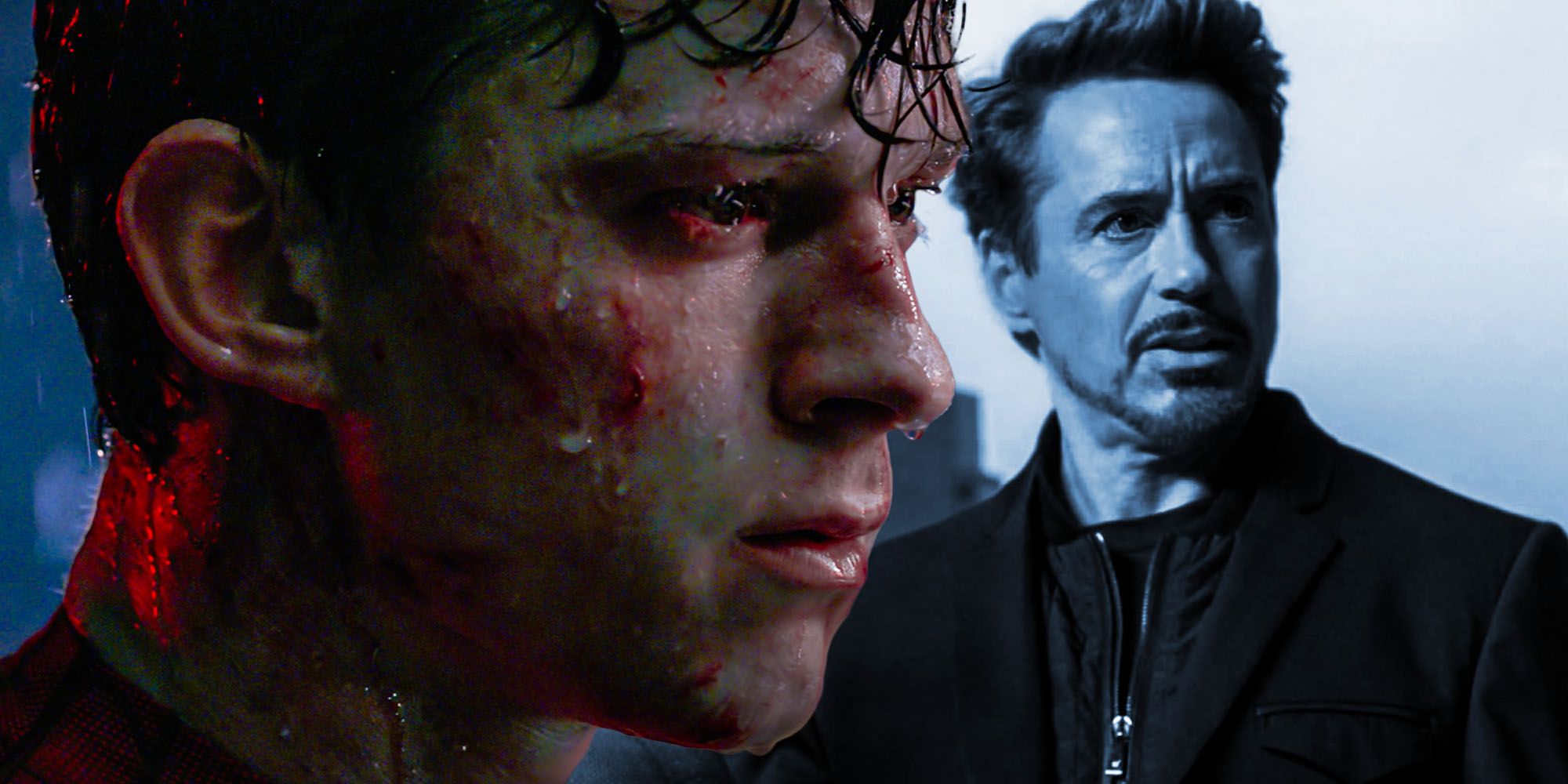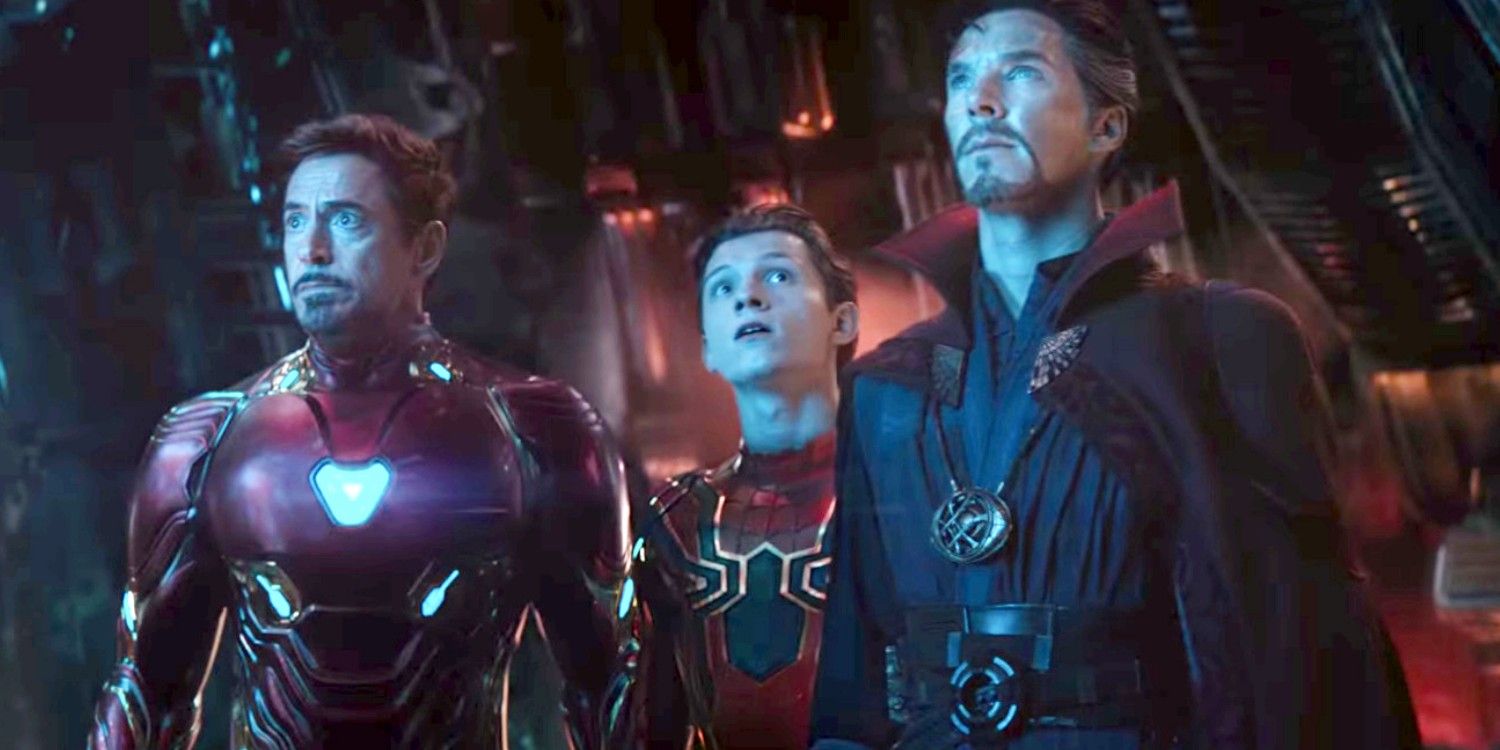Spider-Man appears to be finally moving on from his relationship with Iron Man in Spider-Man: No Way Home, correcting a common criticism of the MCU’s web-slinger. Tom Holland’s iteration of Spider-Man has, since his debut, been closely tied to Robert Downy Jr.’s Tony Stark, contradicting a fundamental characteristic of Spider-Man in his comics and previous movie iterations. No Way Home’s trailers tease a story that will no longer be tied to Iron Man, allowing the MCU’s Spider-Man franchise to have more of an identity of its own.
Spider-Man defied numerous unspoken rules of the superhero comic genre in his 1962 debut. In addition to having a notoriously disliked arachnid as his motif and a host of personal woes outside of his superhero career, Spider-Man was also a teenage hero who lacked an adult mentor. Teenage superheroes were typically either the sidekicks of an adult hero or members of an adult-led team, such as The Fantastic Four’s Human Torch. Spider-Man’s lack of adult mentorship rendered him a relatable hero who needed to learn from his mistakes as both Peter and Spider-Man. Combined with the loss of his father figure, Uncle Ben, Peter’s origin forced him into early adulthood.
In his Captain America: Civil War debut, Spider-Man was defined by his relationship with Tony Stark, who recruited him for his pro-Sokovia Accords team of heroes and equipped him with his iconic red and blue suit (now technologically advanced and heavily armed with Stark Industries gadgetry). To make matters worse, Spider-Man’s characterization in Spider-Man: Homecoming and Spider-Man: Far From Home centered on him trying to impress Iron Man or succeed the recently-deceased Stark. No Way Home will have Spider-Man work alongside Doctor Strange to fix the damage they’d inadvertently done to the multiverse, all while Peter struggles with the seemingly necessary deaths of the other realities’ villains. This story is, refreshingly, driven by Peter’s personal struggles rather than his relationship with Iron Man yet again.
This change may be too little, too late for some viewers, as the MCU’s Spider-Man already defined himself by his mentorship under Tony Stark in previous films. With No Way Home possibly being the end of Holland’s Spider-Man solo films, perhaps he shouldn’t have been so closely tied to Iron Man in the first place. While the connection was understandable, given that the Spider-Man franchise was finally part of the MCU, it came at the cost of a key element of Spider-Man’s identity: His independence and forced self-reliance.
The two previous iterations of Spider-Man, played by Tobey Maguire and Andrew Garfield, respectively, each followed different eras of the character’s nearly 60 years of comic book history. While the lack of overt Marvel universe tie-ins was partially responsible for this, both versions of Spider-Man perfectly captured the character’s independence. While they each received help from allies on occasion (be it the redeemed New Goblin or Gwen Stacy), Maguire and Garfield’s Spider-Man movies generally left Peter with nobody to rely on but himself.
Doctor Strange, thankfully, doesn’t appear to be replacing Iron Man as Spider-Man’s mentor in Spider-Man: No Way Home. Strange’s multiverse-altering spell is depicted as a favor for Peter in the trailers, and the two appear to be inconsistently working together on fixing the damage. If the rumors of Maguire and Garfield returning as their respective iterations of Spider-Man prove true, however, there is a risk that Tom Holland’s Spider-Man may end up being mentored by alternate reality counterparts who have far better-defined identities than the MCU iteration, even without Iron Man.







